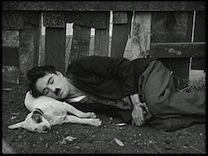To Mr. James Boswell, Esq.
Aberdeen
July 19th, 1776
Dear Sir,
Enclosed you will find the late Mr. N. I urge you to set aside your personal Distaste for the Man and read his Book.
I know that from Age to Age, from Page to
Page (indeed, from Line to Line, Word to Word, even Letter to Letter), things
change radically in his Universe: Prose bleeds into Poetry, Poetry into Prose,
and, suddenly, the most sober and reflective Soliloquy may dissolve into a fit
of hard-to-conceal Flatulence, the Curse of uncontrolled Mirth.
I
understand your Disgust. In part, Sir, I even share it. He is not what I
expected. With Mr. N, one begins to feel—very quickly—that those very same Laws
of Reason which have governed our Lives since the Birth of Newton have been
reshuffled and re-dealt to an Ever Hopeful Humanity from a pack of Playing
Cards consisting entirely of identickal practickal Jokers.
One never quite knows what to expect with Mr. N. One might just as easily wander off a Cliff as trip over a Ruby when strolling through Chelsea. Indeed, more than once, I have been caught in Bed with him—quite Red-Handed—by my Landlady, Mrs. Prynne. Can you imagine me following Him—Jowl to Cheek, Face to Fundament—crawling toward a subterranean Lake at the End of a hot Lava Tube in Java?
And yet, Sir, there we were. And there was Mrs. Prynne. And there were Mrs. Prynne’s scandalized Eyebrows scampering backwards like a pair of frightened Spiders across her Scotch Bonnet and out of the Door!
What else could I do, Sir, but lower my Gaze, lift my Octavo Fig Leaf, and blush?
I have lost track of the Years I have idled away in Mr. N’s imaginative Company: beside a small Lantern, wiggling my Toes in the cool Waters of his cavernous Immensity; regarding with wonder the Darkness above and waiting for a Stalactite to fall and crash through my gaping Mouth. All the while, he stands fishing in the Shadows: a bored Cork bobbing above a School of blind Guppies, his Hook baited with Nothing but a naked Barb.
Plato was wrong about the Shadows. Light a candle and look around you, Sir. Now, look inside. Deeper, Sir, deeper. Does not the interior World we occupy more closely resemble Mr. N’s volcanic Lagoon than She does the dusty Caves of Platonic Philosophy? The Shadows our Lanterns cast upon the sulph’rous Walls of our Crania bear no relation to any idealized Form; but even here, the thorniest Rose one may encounter is no less fragrant despite its vicious Stem.
So it is with Life, Sir. And with Art. In the scarlet Petals of a Rose, all of our Hopes and Fears finally flower. According to Mr. N, these Eruptions are simply the ordinary Properties of Existence, the sort of things Mr. Garrick’s theatrickal Troupe trafficks in: Sheets of Steel Thunder, mangled Shakespeare, a quiet Cassandra with itchy Privates.
At least from Her, if not from Him, we may infer an Intelligent Design to the Cosmos, even a benevolent Heaven; or, failing that, Damnation and Eternal Hell-Fire—the Clap.
I suspect that the Truth of the Matter lies buried in the Act of Creation: somewhere between a burning Desire and a painful Discharge.
Alas.
Alas, Sir, alas. I should have done. Mrs. Prynne has arrived to badger me with Milk and Tea.
“Patience, Madam. Madam, please. Madam, will you desist? Sit ye down with your Milk and your Tea! Have you no Eyes? Can you not see? I am busy in Bed; and, but for my Nightcap, completely undres’t! Please, Woman, allow me to add one further Paragraph to the Body of this Letter before I rise. I cannot leave my dearest Friend with one of those nettlesome Hangnails which AUTHORS do so often AFFECT: Afterwords, Epilogues, Epitaphs, and the forever-to-be-dreaded Post Script. I shall leave NOTHING unsaid.”
To speak plainly, James, in brief, with a furious Widow at my Elbow as Witness: after the Death of my dear Wife, without my Midnight Rambles with Mr. N—and the Milk, and the Tea, the relentless Ministrations of Mrs. Prynne each Morning—I am sure that I should have committed Suicide.
I hope you will consider this Book, as I now consider my Life, a Gift.
Your most Obed’t, Humble, Serv’t,
Sam Johnson
